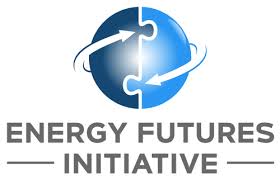Nuclear Reactors 294 - Failing U.S. Nuclear Industry Is Vital To U.S. National Security Says Former Secretary Of Energy
Former Secretary of Energy Ernest Moniz released a report today stating that the fact that the U.S. nuclear energy sector is in decline constitutes a risk for U.S. national security. The report was issued by the Energy Futures institute. One of main benefits of a robust nuclear energy sector, according to Moniz, is preventing terrorists for getting their hands on uranium processing technology as well as supporting nuclear Navy vessels.
Moniz is a nuclear scientist who served as President Obama’s Energy Secretary. He is also the CEO of the Nuclear Threat Initiative which is a nonprofit organization dedicated to nuclear disarmament, securing nuclear materials and the nonproliferation of nuclear weapons. He says that we need to expand loan guarantees, tax incentives and research on nuclear technology.
At the present, about twenty percent of the electricity in the U.S. is generated by nuclear power plants. However, the U.S. nuclear power sector has serious problems. Since 2013, five U.S. nuclear power plants have been shut down. They were generating about five gigawatts of power. Over the next nine years, six more nuclear power plants are scheduled to be permanently shut down. There were four nuclear power reactors being constructed in the U.S. after decades of no new reactor builds. The construction of two of those reactors has been halted and the other two may also never be finished.
Westinghouse Electric Company, a subsidiary of Toshiba of Japan, was a pioneer of nuclear technology and a builder of nuclear power reactors. Over half the four hundred nuclear power reactors in the world use Westinghouse technology. The four AP1000 power reactors that Westinghouse was building in the U.S. encountered serious cost overruns and delays. This led Westinghouse to declare bankruptcy. Following the bankruptcy, Westinghouse stated that it was going to refocus its activities in the dismantling and decommissioning of existing nuclear power reactors.
The current Trump administration and Energy Secretary Rick Perry have said that they want to help the nuclear industry. Perry is conducting a study on the importance of nuclear power for what is called baseload power plants that operate twenty four/seven to provide the base for the U.S. electrical supply. However, the proposed budget by the Trump White House includes severe cuts to the budget for the Energy Department. One of those cuts would be the end of the loan guarantee program.
Moniz says that the U.S. needs to have companies that can “build and run nuclear enterprises.” The U.S. Navy has to have nuclear components and nuclear engineers to maintain its fleet of nuclear surface ships and submarines. This means that a functioning private nuclear industry is essential to the Navy because such companies it with provide nuclear technology and nuclear services.
"A shrinking commercial enterprise will have long term spillover effects on the Navy supply chain, including by lessened enthusiasm among American citizens to pursue nuclear technology careers," according to the report. The report goes on to say that the U.S. government should direct the Federal Energy Regulatory Commission to "place a greater emphasis on the national security importance of nuclear power and its associated supply chain."
